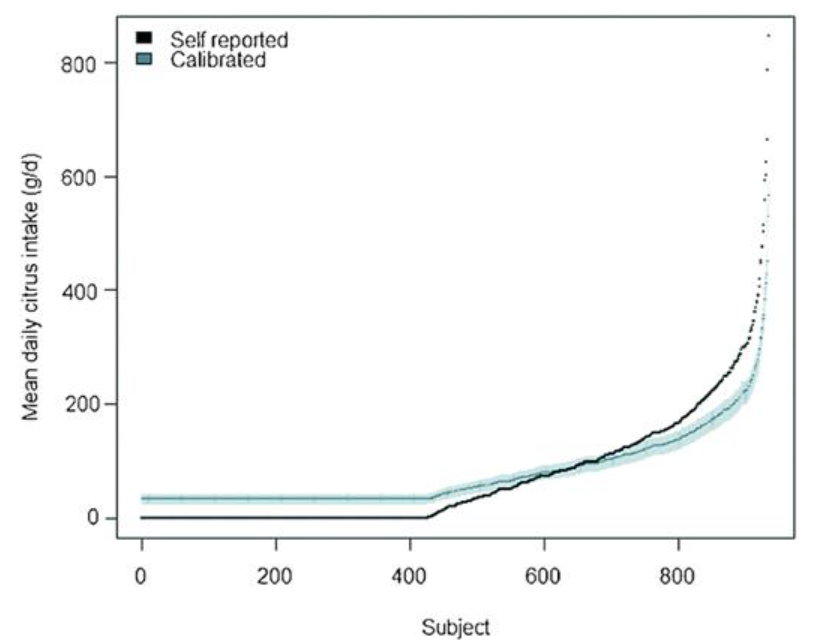Combining biomarker and food intake data: calibration equations for citrus intake.

D’Angelo, S., Gormley, I.C., McNulty, B.A., Nugent, A.P., Walton, J., Flynn, A. and Brennan, L. (2019).
American Journal of Clinical Nutrition.
Measurement error associated with self-reported dietary intake is a well-documented issue. Combining biomarkers of food intake and dietary intake data is a high priority. The aim of this study was to develop calibration equations for food intake, illustrated with an application for citrus intake. Further, a simulation-based framework was developed to determine the portion of biomarker data needed for stable calibration equation estimation in large population studies. Calibration equations were developed using mean daily self-reported citrus intake (4-d semiweighed food diaries) and biomarker-derived intake (urinary proline betaine biomarker) data from participants (n = 565) as part of a cross-sectional study. Different functional specifications and biomarker transformations were tested to derive the optimal calibration equation specifications. The simulation study was developed using linear regression for the calibration equations. Stability in the calibration equation estimations was investigated for varying portions of biomarker and intake data “qualities.” With citrus intake, linear regression on nontransformed biomarker data resulted in the optimal calibration equation specifications and produced good-quality predicted intakes. The lowest mean squared error (14,354) corresponded to a linear regression model, defined with biomarker-derived estimates of intakes on the original scale. Using this model in a subpopulation without biomarker data resulted in an average mean plus/minus SD citrus intake of (81-66 g/d, 81+66 g/d). The simulation study suggested that in large population studies, biomarker data on 20-30% of the subjects are required to guarantee stable estimation of calibration equations. This article is accompanied by a web application (“Bio-Intake”), which was developed to facilitate measurement error correction in self-reported mean daily citrus intake data. Calibration equations proved to be a useful instrument to correct measurement error in self-reported food intake data. The simulation study demonstrated that the use of food intake biomarkers may be feasible and beneficial in the context of large population studies.
Bio-Intake Shiny App: https://adiet.shinyapps.io/Bio-Intake/